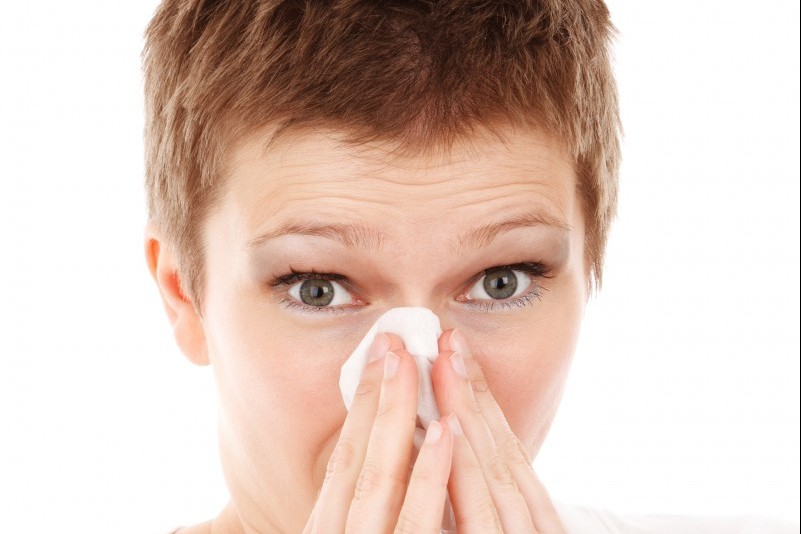Why (and How) to Switch from Traditional Air Fresheners at Your Facility
People consider a business’s cleanliness as a reflection of the business itself. Around 90% of customers will have a negative opinion of a business if its public spaces are not clean. And 92% of consumers use cleanliness to decide if they come again or recommend a business to someone else.
While mopping, dusting, and vacuuming can keep areas looking clean, how a place smells can have an even bigger impact on people’s perception of clean. In public restrooms alone, bad odors are a top reason for customer dissatisfaction. And 66% of healthcare leaders say keeping restrooms clean and odor-free increases business performance.
Most facility managers use air fresheners to fight bad odors. The most popular commercial products include: Incense, candles, or reed diffusers; automated fragrance-emitting devices; wall-mounted deodorizers; plug-in or spray air fresheners; and urinal or toilet blocks.
But what’s in those popular air fresheners, anyway? The most common air care products could actually be doing more harm than good to your customers.
Harmful Ingredients in Air Fresheners
Even though commercial air fresheners are widespread, the harmful effects of their ingredients aren’t as well known. In fact, about 20% of the population and 34% of people with asthma report health problems caused by air fresheners.
Most air fresheners use fragrance to cover up odors temporarily. The chemicals in fragrances can contain volatile organic compounds (VOCs) — including formaldehyde and benzene. Research shows that VOCs can cause negative health effects (like headaches, nausea, asthma and respiratory issues, and neurological damage) and even cancer, in high concentrations.
A study by the Natural Resources Defense Council (NRDC) found that 86% of popular air fresheners contained dangerous phalates. These chemicals can cause hormonal and reproductive issues, birth defects, and developmental disorders. National Geographic’s The Green Guide also reports that many “many air fresheners contain nerve-deadening chemicals that coat your nasal passages” and can halt your sense of smell for a short time.
When Buildings Make You Sick
“Sick building syndrome” (SBS) is a term used when facility occupants experience health effects that appear to be linked to time spent in a building. A World Health Organization Committee report suggested that up to 30% of new and remodeled buildings worldwide may be the subject of excessive complaints related to indoor air quality (IAQ). Chemical contaminants from VOCs, like those in air fresheners, are one of the main causes of lower IAQ.
Because of their use of unsafe chemicals, air fresheners and other non-natural odor removers can contribute to indoor air pollutants. According to one study, the use of air fresheners directly correlates to high indoor levels of chemical compounds that decrease IAQ.
People Prefer “Fresh” to Fragrance
Fragrance products don’t eliminate bad smells. They hide them behind a different scent. Over time, the odor molecules that mix with perfumes in air fresheners separate again and odors return. Only true odor eliminators get rid of odorous molecules for good.
And while some might think air fresheners create a more pleasant environment for customers, studies have shown people actually prefer a “no scent” experience in businesses and workplaces. According to customer surveys, about 20% of people want to leave a business “as quickly as possible” if they smell air fresheners or fragranced product upon entry. Additionally, around 18% of those surveyed avoid using public restrooms because of scented products.
Other surveys found:
- Almost 2.5 times as many passengers (59% of those surveyed) would choose an airplane without scented air than with scented air (24% of those surveyed).
- Around 60% of visitors would favor a hotel without fragranced air (vs. 28% who prefer scented air).
- About 53% of workers would support a fragrance-free workplace policy (compared to 19% who would not).
A Safer Alternative
But aside from traditional air care products, how can businesses fight offensive odors? Natural odor removers, like Fresh Wave IAQ products, use plant oils to find and neutralize odor molecules. They don’t rely on toxic ingredients or fake fragrances and completely remove odors for good. The result is an odor-free facility and a safer environment for workers and guests.
How to Switch to Natural Odor Removing Products
The beginning of a new year is an ideal time to make a change. The first step is to remove all non-natural products from use. Get rid of all air fresheners that use harmful chemicals as active ingredients. According to many studies, this is any product that includes fragrance. Next, substitute harmful products with safer options, like Fresh Wave IAQ Gels, Sprays, and other products.
Start you transition from harmful chemicals to safe, natural Fresh Wave IAQ. Our team of odor control experts will help you develop a plan and identify which solutions are best for your odor issues. Contact us now to learn more.





